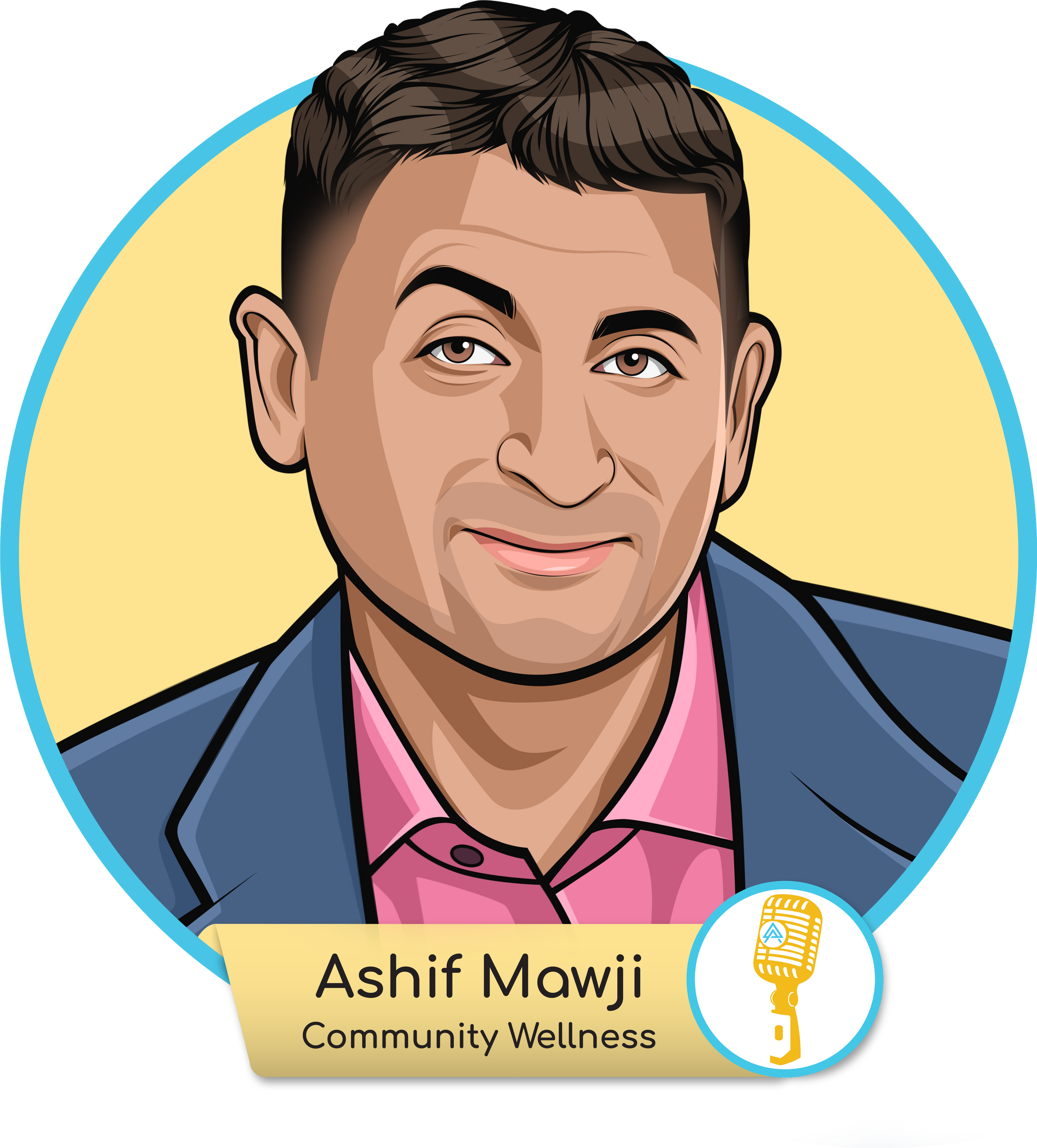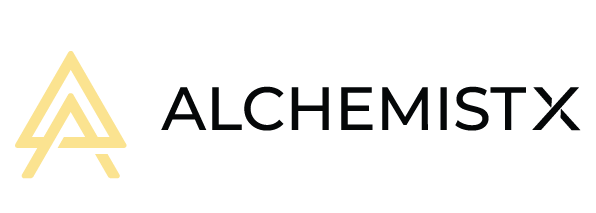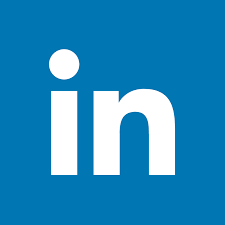Why do so many high achievers hit every goal, earn the title, build the company, and still feel lost or unfulfilled? In this episode, Dr. Sharon Spano PhD explains what actually happens when driven founders and executives outgrow hustle and need a deeper way to lead.

AlchemistX: Innovators Inside
E.27 - Ashif Mawji: Community Wellness
Published on
February 2, 2022
"When you bring in entrepreneurs, they tend to solve problems – really well." - Ashif Mawji
Show Notes
Rachel Chalmers:
Today, I'm delighted to welcome Ashif Mawji to the show. Ashif is a serial entrepreneur who strives for efficiency in everything he is involved with. He's a venture partner with Rising Tide, a venture capital firm investing primarily in the information technology and healthcare life sciences markets. He sits on the boards of the Telus Friendly Future Foundation, Invest Alberta, the Edmonton Police Service Foundation, Hockey Canada Foundation, and the Sarah McLachlan School of Music, among many others. Ashif has 12 patents and speaks three languages. It's so great to have you on the show. Thank you so much.
Ashif Mawji:
Thank you for having me.
Rachel Chalmers:
You are, among many other things, a fantastic networker and mover and shaker in your home province of Alberta. What is it about Alberta's economy that has you so excited?
Ashif Mawji:
Well, there are so many things about Alberta that excite me, but the biggest thing is the talent. I found that out firsthand when I had my operational companies because we were in 180 countries, and a consistent message I got from my clients in the various countries were, “The talent that you have is just amazing!” You know, it's smart people, but they're dedicated, they're loyal, they're hardworking, they have a great work ethic and they just strive for quality and excellence. And so to me, that's the biggest thing about Alberta, is the talent that we have here.
Rachel Chalmers:
And is that technical talent coming out of the universities or is it more generally just a work ethic in the province?
Ashif Mawji:
I would say it's both, Rachel, in terms of technical talent. I mean, our University of Alberta (U of A) here is known to be one of the best. I believe it's in the top five in the world for artificial intelligence and machine learning. And so our AI and ML talent here is just amazing. But beyond that, our programmers and our technicians. But if you look at our laborers, and you look at our business grads, you look at our law students, every single industry – I can tell you, the talent here is just incredible. And you know, a good testament is… It was recently announced that Warren Buffett's successor is going to be Greg Abel. Well, Greg is a University of Alberta graduate.
Rachel Chalmers:
That's awesome. Can you tell our listeners a little bit more about Amii, the artificial intelligence program at the University of Alberta?
Ashif Mawji:
So Amii was actually first part of the U of A, and then they spun off to be a separate not-for-profit. But that's where the famous Dr. Rich Sutton works, and he's a professor there [U of A] along with his day job, which is at DeepMind. We've got, again, the best talent that you can think of right here within Amii. And Amii is a great institution because it helps companies (startups as well as advanced companies) with any AI/ML experience that they need, and more in terms of training and so forth, but then in providing great domain expertise to them. So it's a great resource that Alberta offers to companies that are here or want to come here, if you will.
Rachel Chalmers:
And then more generally, you've got these two cities right up on the high prairies sort of between eastern Canada and the Vancouver coast, and it's got a sky-high quality of living. It scores highly on the human index scores. Why do you think that is?
Ashif Mawji:
You know, it's a good question. I mean, the quality of life here is just again, that's the reason why we are here. I mean, we could be anywhere in the world, you know, and one could argue that, given my background, I should be in the valley, right? But the quality of life here (and I've been to several countries) in Alberta is, again in my opinion, second to none. [We have] great health care, great education. I mean, especially in Edmonton, we don't have private education because quite frankly, you don't need it. Public education is better than private in most cases. Great hospitals, great doctors, great in the art scene. So again, all the things that I would look for to raise my family – Alberta has and does it really well.
Rachel Chalmers:
What is something that surprises people from elsewhere, maybe particularly from the valley when they visit Alberta?
Ashif Mawji:
There's a few things: Their assumption of the two cities, Edmonton and Calgary, are that they're smaller cities. But you know, our population in both exceeds 1.1 million. And so it's quite diverse. You look at the diversity and it's amazing. A lot of the different groups are represented really well in both cities. The second thing is the environment. When you go outside the fresh air and the quality is just… you appreciate it. When you start going to crowded cities you go, “Wow, our air here is just, again, incredible.” And then the scenery, right? If you go to our Rocky Mountains, if you see or look at Banff National Park or Jasper National Park, it's breathtaking. I have had clients from the U.S. that have the Rocky Mountains come here and they say to us that, “Yours are way better.” It's just pristine.
Rachel Chalmers:
I can't wait to come. You and I met very fortuitously earlier this year when we were working together on the application for the Community Safety and Wellness Accelerator. Can you tell our listeners the story of the CSW from your point of view?
Ashif Mawji:
The CSW is something that myself and our Chief of Police, Dale McFee, had been talking about. Even before Dale became the EPS (Edmonton Police Service) Chief, and it started with the discussion of, what are the community's largest problems? And it's the same thing that you hear everywhere else: homelessness, addictions, mental health, domestic violence and so forth, which pretty much every large city has. And so, Dale and I were chatting and he says, “Well, what do you think the issue is because it's not like we're not spending enough; we're investing enough. Every year we spend more. But the outcomes aren't that great, right? No one's really happy, and so what is the issue?” And we jointly came to the conclusion that we hadn't really looked at the problem from a different lens. So we haven't brought in entrepreneurship, and imagine the other problems that we've faced whether in industry or anywhere else. When you bring in entrepreneurs, they tend to solve those problems – really well. And if you pair entrepreneurship with data, AI, the right accelerator program, the right mentorship, and the right funding, well, that's a recipe for success. And that's how the discussion came about, asking who would be the best accelerator? And for us, it was AlchemistX. Again, everything that you've done, everything that you do and the credibility and the mentors in the network that you have, we thought would be the right ingredient. So, that was the best Sunday call I've ever had, was a call I had with you.
Rachel Chalmers:
It was a very memorable conversation. And of course, we're delighted. We have this big apparatus for solving wicked problems, and for us to be partnered with a group in this wealthy, amazing province that's really motivated to work on some of these wicked problems is just a wonderful stroke of fortune.
Ashif, when you look back on your career to date. What are you proudest of?
Ashif Mawji:
There's several things and I know you said career. Obviously, family to me would be my number one. But, on the career spectrum, I would say it's my need to be creative and innovative, and take risks, you know? And I look back when I graduated from school, every one of my friends and colleagues from school went and got a job, which was the smart thing to do. It was the right thing to do. It was what you're supposed to do. And I didn't do that. I went and started a company, and everybody, including my profs, were saying, “That is a bad move. That is not the right thing. Go and get experience.” And I just said to myself, “No, I want to go and work for myself.” And I did that. And luckily, I found a really good contract, and started off not even doing what I wanted to do, which was programming. It was more administrative, but it was in the IT group. And my manager, Steve, took a chance on me and I got the work done and then he allowed me to go into programming, and I got that. Long story short, in three years, I was able to partner with IBM and win a $60 million outsourcing deal.
Rachel Chalmers:
Got to love that. If you have one do over, what might you have done differently?
Ashif Mawji:
You know, it's around mentorship and surrounding yourselves with the right people. I did not do that up front. I always thought as an entrepreneur, “I know what I'm doing. I don't need help.” And I did that. And you know, if I hadn't done that, I think I could have been much further ahead. Now, I would never do that. I would never advise a startup to not take mentors in and bring an advisor, et cetera. But again, that was something that I did, and it was a bad mistake.
Rachel Chalmers:
And speaking as a mentor and advisor, I frequently encounter very early-career entrepreneurs who do not want to hear my constructive observations, and who are convinced that they know what they're doing and some of them genuinely do and go on to success. But the majority would certainly benefit from having better mentors. What do you look for in a mentor?
Ashif Mawji:
For me in a mentor, it's somebody that has the humility, somebody that is really there. The motives are there to help me. They're not there for any other motive. They just want to be there to help me, coach me, connect me to different people, et cetera, et cetera, and kind of be there when I have good days and I want to share a celebration story or when I have bad days where I'm scared and I can't make payroll. So just somebody like that who is going to be there for me and not judge me, but really be there to help me. It would be the ideal mentor.
Rachel Chalmers:
And the network piece is the part that everyone obviously appreciates. Getting introduced to investors is great, but I think the part that's harder for people to appreciate but is almost more valuable is when a mentor asks difficult questions, and it's not intended to undermine the entrepreneur's confidence, it's intended to get their hypothesis to be stronger by being examined. So that's a hard line, a hard balance that we constantly have to strike. Do you find that with the startups that you advise?
Ashif Mawji:
Yeah, exactly. You know, I ask for permission. I ask for permission saying, “Would you like me to be candid, and it might hurt you, but it's going to be the truth, and it's going to be in the best interests of you and your business? Or would you like me to just be passive and tell you what you want to hear? Or just be more in the praise mode, and praise you for everything?” And pretty much every time they ask me to be candid but because I've asked for that permission, then they've set their mind up to expect the worst. And I don't sugarcoat anything. I tell it the way it is, but I use my experience sharing. So rather than telling you what to do, I'll tell you what I did in that scenario and how it affected me, and what I should have done differently.
Rachel Chalmers:
That's a good approach. I like the concept of asking for consent because the challenge is always persuading somebody that you're genuinely on that team, and that you're pushing them because you want to make them better. How would you distill all of your vast experience into one or two lessons for our listeners?
Ashif Mawji:
Wow, that's a tough one. You know, there's strength in numbers, so I'll pick the theme again on mentorship: Surround yourself with the right people and make it a diverse group. I know quite often an entrepreneur will look for somebody in their industry, and I'll challenge them to look for somebody outside of their industry because I know for me that my most wicked problems were not solved by people in my industry. They were solved by people that had nothing to do with my industry because they looked at the problem very differently. So to me, getting the right mentors and a diverse set of mentors, I think is very important. You know, the second thing is to be mission-oriented. I find a number of startups and entrepreneurs saying when I ask them, “Why are you doing this?” And it's about, “Well, I've heard AI is the next big thing or I've heard blockchain's the next big thing,” and the theme is around chasing the next big thing. And to me, it's like, “Well, are you passionate about it? Did it affect you personally? Is it something that’s near and dear? Something that when you are a month away with no payroll, you've been working 20 hours a day, you've had no sleep, you have Kraft macaroni and cheese in your pantry box, and you still want to wake up and go to work – that's the right cause.”
Rachel Chalmers:
Yeah. And when the answer is, “Well, I'm passionate about making money and making money would make a big difference to my life.” That's not going to be enough when payroll is looming.
How do you avoid burnout?
Ashif Mawji:
So this came from a great entrepreneur and great mentor, Bill Gates, for me. And I remember him saying, you know, it was the same question because he used to work tirelessly at Microsoft – lots of hours. And then he got a revelation of taking time off and spending one day on, not Microsoft-related work. And so when he said that, I was thinking to myself, “Well, there's no way I could do that… taking a day off. That's unheard of.” But I started doing that. So I took Fridays off and I didn't work. And actually, you know, again in Edmonton, I have a hot tub, so I'd sit in the hot tub and I like smoking cigars. That's my stress relief. So I'd have my laptop on a floating pad that holds a laptop in the hot tub, have a cigar, and I would think about different things, and I would think about different problems not related to my industry. That allows me to release my stress and think about other problems, and just refocus myself. That one day of free time, allows me to avoid that burnout.
Rachel Chalmers:
That's an indelible mental image. Thank you for that. Bill Gates, a huge reader as well. And that's one way, I think, to get that diversity, that breadth, of thought that you were talking about with mentors into your own brain, is really, reaching out into areas where you're not a domain expert and being curious and being open to ideas that come from other fields.
Ashif Mawji:
Oh, exactly.
Rachel Chalmers:
Speaking of, what is the best way for our listeners to connect with you or to follow your work?
Ashif Mawji:
You know, I'm quite regular on LinkedIn, so LinkedIn would be the best place because I tend to – It might not be immediate – but when I take on a new role or do something interesting, I will update my profile and kind of post in there every now and then. So that's probably the best way. I'm not really that big on Twitter. I am on Twitter, but I don't post as often there… work-related anyways.
Rachel Chalmers:
What does the future look like for you personally? We've got this big joint project we're working on together. How do you see that panning out?
Ashif Mawji:
You know, my biggest thing, my purpose in life is to (you'll hear this quite often) but it's to leave the world in a better place than you found it. And to me, I really take that to heart because, when I look at where I came from, (I came from Kenya) I came from poverty and I saw poverty rampant. I know that we can do better for humanity. And so to me it's about, “What can I do to make a big difference in humanity around the world?” And that for me is the future. If I can move the needle a bit and then be happy with myself saying, “I did actually give it everything I could.” That to me would be a great future. And that's kind of what I see. My future is: Everything I do has to move the needle for humanity.
Rachel Chalmers:
So for the next five years, everything in our industry goes exactly as you hope it would. You are the mover and shaker, and everybody takes your advice and does what you tell them to do. What is Alberta? What does the world look like five years from now?
Ashif Mawji:
Oh, five years from now? You know, for Alberta specifically, we're very heavy on natural resources in oil and gas and energy. I see us really moving the needle on diversity. So, when you first talk to somebody about Alberta, the thing that won't come to their mind is energy. The thing that'll come to their mind is innovation, technology, diversification, and artificial intelligence. Those are the things that I'd like Alberta to be known for. A province that really pivoted and moved from energy into innovation, and really embraced it and shared that with the rest of the world.
Rachel Chalmers:
Yeah, that's what we're all going to need to do. How about the world more broadly?
Ashif Mawji:
More broadly, I think it'll be about humanity. I think we can do a lot in terms of curing some of the things that we take for granted such as malaria and so forth. I think those [are things] we can get rid of. I think using AI, we can have much better outcomes on medicine, as we've seen with vaccines. How fast the COVID vaccine was developed, I think, is a great testament to what I see coming in for treatments around cancer and things that we've always looked at and said, “That's a tough problem.” I think technology will take us to the level where we should be able to solve those issues. And I think things like poverty and hunger we will be able to solve, again, using technology, using different ways of growing food and so forth, synthetic foods and getting plant-based meats as an example – or plant-based foods I should say. Things like that, I think, will really drive us to that space where we can all actually live a better life and lift everybody around us.
Rachel Chalmers:
Sounds good to me. What else should I have asked you?
Ashif Mawji:
Well, my motorcycle racing days were fun. I think you know the story around that: I used to race motorcycles and then when I moved to Canada and I got married, it was in my marriage contract that I will not ride a motorcycle again.
Rachel Chalmers:
Yeah. Congratulations on surviving that! My brother rides a very nice Italian motorbike and I am continually concerned for his well-being.
Ashif it's been a delight to have you on the show. I couldn't be looking forward more to working with you over the next few years. Thank you so much.
Ashif Mawji:
Well, thank you. And likewise, I really look forward to working with you.
References
Ashif’s Twitter on Twitter
Ashif’s LinkedIn on LinkedIn
Rising Tide – Where Ashif is a Partner
Telus Friendly Future Foundation – Where Ashif sits on the board
Invest Alberta – Where Ashif sits on the board
Edmonton Police Foundation – Where Ashif sits on the board
Hockey Canada Foundation – Where Ashif sits on the board
Sarah McLachlan School of Music – Where Ashif sits on the board
University of Alberta - University in Alberta mentioned by Ashif
Amii - Artificial intelligence program at the University of Alberta
DeepMind - Company mentioned by Ashif
TELUS Community Safety and Wellness Accelerator (CSW) - Accelerator mentioned by Rachel
Recent Episodes

How the JOBS Act and Investment Crowdfunding Sparked the Rise of the Customer-Investor
Sherwood “Woody” Neiss explains how investment crowdfunding grew from an eight-bullet outline into a 485-page regulation that opened startup investing to everyday people.

.svg.png)


.png)

.png)



